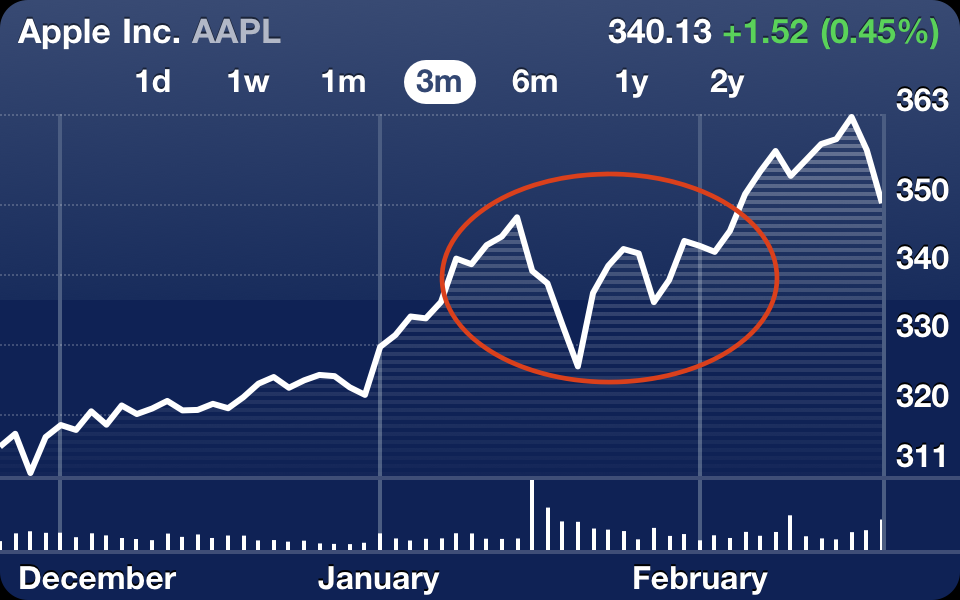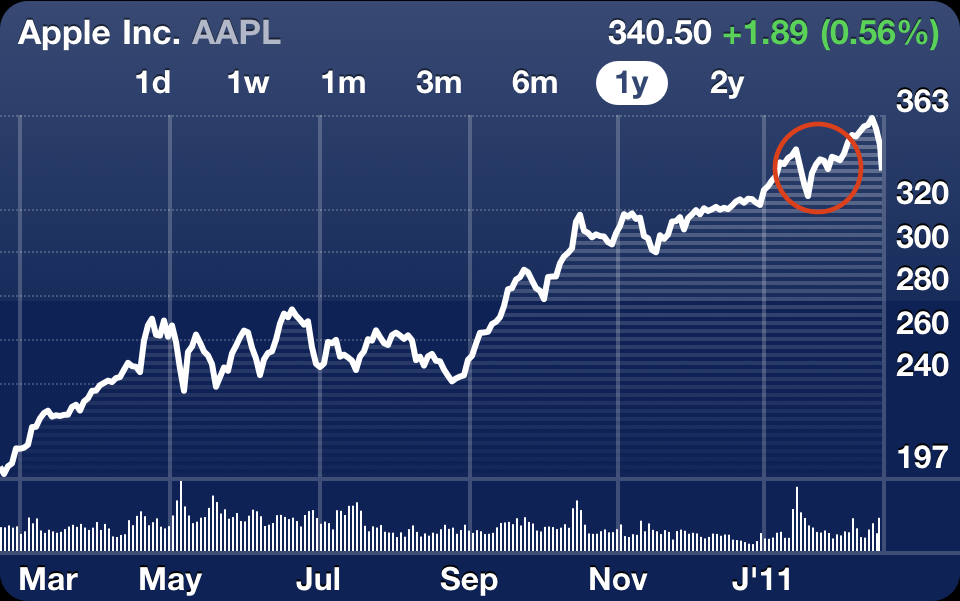Why Steve Jobs Shouldn’t Return to Apple
Since Steve Jobs announced that he was taking a medical leave of absence from Apple (see “Steve Jobs to Take Medical Leave of Absence,” 17 January 2011), while still remaining CEO, he has been seen at dinner with President Obama and other tech industry luminaries, and there’s been a fuss with shareholder groups demanding a public succession plan (unsurprisingly for a company run by adults, Apple says it has already implemented succession planning).
That reminded me of a conversation I had with former Apple evangelist Tim Holmes at Macworld 2011. Ever the one to make brash predictions, Tim said, “Steve will never come back to Apple.” I hadn’t thought about it that far into the future, but as Tim explained himself, I had to agree with his reasoning.
This isn’t a completely new idea. Farhad Manjoo wrote over at Slate about why Jobs won’t return to Apple. But while I think Farhad’s conclusion is correct, I disagree with his reasoning, which is that Jobs won’t return because “What more is there left for Jobs to do?” Jobs isn’t driven by money or concrete goals; he wants to change the world, and people who want to change the world don’t stop wanting that just because they’ve achieved certain benchmarks. The man is not going to sit around for the rest of his life because Apple created the iPod, iPhone, iPad, and iTunes Store under his leadership. I’m sure he’s proud of those achievements, but if I’ve learned anything
from watching Steve Jobs all these years, it’s that he always has more that he’d like to accomplish.
No, the reason Jobs won’t, and more to my point, shouldn’t officially return to Apple is that it’s in Apple’s interest to downplay his eventual departure as much as possible, given the widespread perception that he is essential to the company’s performance.
Apple’s stock price was hurt by the announcement of his medical leave of absence, but within a few weeks had recovered. Viewed over a longer period of time, that dip is barely even visible. The recovery was bolstered by another record-breaking financial report (see “Apple Reports Stellar Q1 2011 Financial Results,” 18 January 2011). The timing of these announcements was carefully orchestrated, I’m sure, and it shows that Apple handled the situation well, reassuring a skittish market that the company would continue to operate without missing a beat.
So why should Apple risk going through such an announcement again when this one was handled so well? Barring a major corporate crisis that would require his talent for public communication on an ongoing basis, Apple has little to gain from Jobs officially returning from his leave
of absence. In one possible future, Jobs would participate less and less in Apple’s public events, to the point where Apple could uneventfully announce a CEO transition, with Jobs remaining chairman of the board, and some time later announce that he would be stepping down as chairman while remaining a special consultant.
It’s important to realize that none of this has to affect Jobs’s actual engagement with product development and overall direction. That Jobs “will never come back to Apple,” as Tim suggested, doesn’t mean that he won’t appear on the Apple campus or even, health permitting, work 10-hour days. All it means is that the open-ended medical leave of absence can remain in place as long as it needs to, with Jobs acting as CEO in press releases and behind the scenes as necessary.
The goal is for Wall Street to see that Jobs is not the linchpin to Apple’s success. That, of course, assumes that Apple will continue to succeed without him involved in day-to-day operations, but his previous absences have shown that the experienced Apple executive team can run the company effectively.
In the end, it’s impossible to say for sure that Steve Jobs won’t officially return to Apple, even if I don’t see that happening. But I can say that Apple’s solid handling of the medical leave of absence indicates that he should continue to minimize his official duties so Apple can gracefully transition to a new CEO and Chairman when that becomes necessary.


The way you've described Steve's current status reminded me that he was the "interim" CEO for the longest time. And weren't there people then who were uncomfortable with that ongoing "uncertainty?" As I recall, the transition to bonafide CEO was as uneventful as the transition you describe here.
That's an excellent analogy.
And that shareholder demand for a public succession plan? Voted down.
http://www.cultofmac.com/apple-shareholders-vote-down-calls-to-reveal-steve-jobs-succession-plan/83377
I think it's time for Adam Engst to leave the TidBits website and stop writing about Mac and computing issues for publication. It doesn't matter that he founded the business; it doesn't matter that he's doing what he loves with his life. It doesn't even matter if it gives him a reason to get out of bed in the mornings, trying to make the world a better place to the fullest of his abilities. Who cares if this burning desire is even keeping him alive another year or two.
No, what's really most important is all the neurotic "uncertainty" that I feel, and how hard it is on all the other long-time, emotionally-invested readers of this website. They just aren't sure what's going to happen here eventually, and that's bad!
Adam has higher obligation to his readers and the wider world to pander to our feelings... doesn't he?
Sarcasm, yay!
Perhaps you missed the part where I said that "it doesn't mean that he won't appear on the Apple campus or even, health permitting, work 10-hour days."
Or where I said:
"I'm sure he's proud of those achievements, but if I've learned anything from watching Steve Jobs all these years, it's that he always has more that he'd like to accomplish."
What I'm saying here is that he should keep doing everything he can and everything he wants to do, but that we shouldn't expect to see him return officially, since Apple needs to minimize the effect of the eventual transmission.
Jobs clearly shuns the limelight, so this shouldn't be all that hard.
Actually, Adam left TidBITS in 1998, but a string of very accomplished impersonators have been maintaining the illusion that he's been there all along. However, the charade cannot continue much longer!
"This isn't a completely new idea."
Nope - I said the same thing almost 2 years ago during Jobs' last leave of absence. He doesn't need to be CEO any more.
http://www.macobserver.com/tmo/article/apple_better_off_without_jobs/
I agree, part of our neurotic culture is the cult of personality, and it needs it's Xanax every so often.
Does anyone care that the man may be dying, that his medical leave may have nothing whatever to do with pursuing broader horizons? You guys ought to be working for Monsanto.
I think everyone cares that he's suffering from ill health, which is the only reason that there's considering going into how Apple will deal with a future without him. We certainly hope that he returns to full strength and can do whatever he wants, but even if that's true, the argument that the best thing for the company would be for him to maintain the medical leave of absence remains.
Though it's quite wrong to compare them in all sorts of ways, Steve Jobs could remain to Apple as Mandela does to South Africa - beloved, inspirational, not that active, but still with us!
Perhaps Mr. Jobs wants to leave the humdrum work of chopping wood and carrying water as executive of an awe-inspiring company and concentrate on creating the perfect tortilla.